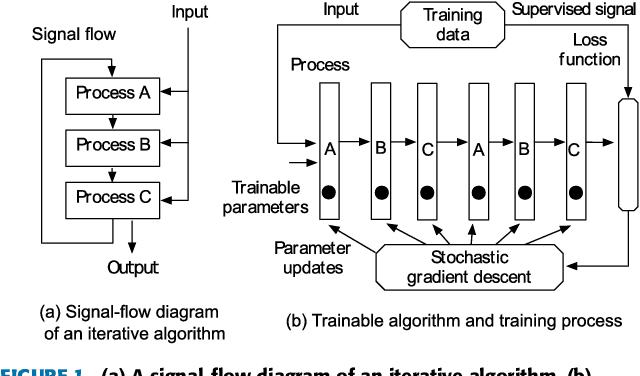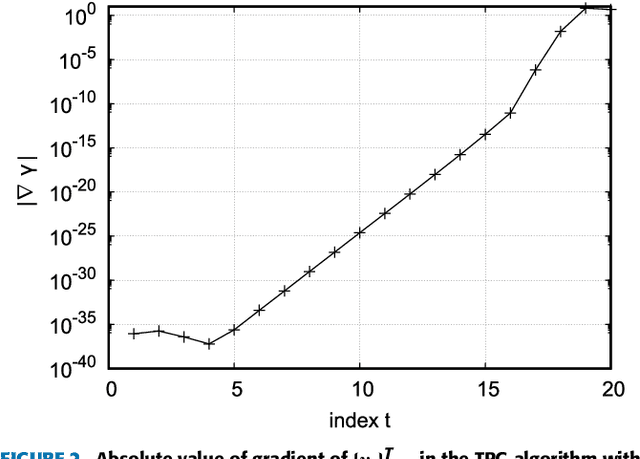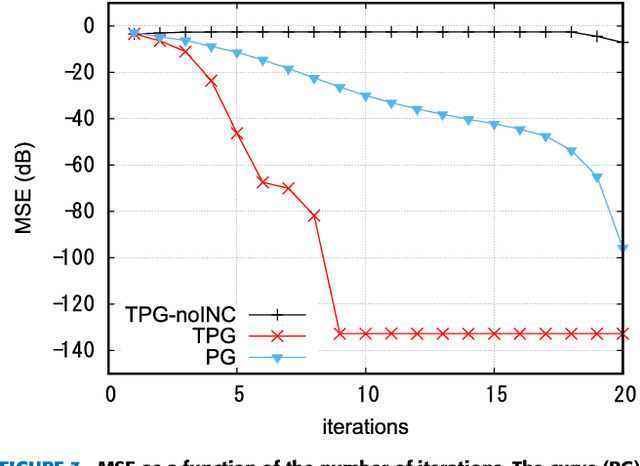Trainable Projected Gradient Detector for Massive Overloaded MIMO Channels: Data-driven Tuning Approach
Paper and Code
Dec 25, 2018



The paper presents a deep learning-aided iterative detection algorithm for massive overloaded multiple-input multiple-output (MIMO) systems where the number of transmit antennas $n(\gg 1)$ is larger than that of receive antennas $m$. Since the proposed algorithm is based on the projected gradient descent method with trainable parameters, it is named as the trainable projected gradient-detector (TPG-detector). The trainable internal parameters like step size parameters can be optimized with standard deep learning techniques such as back propagation and stochastic gradient descent algorithms. This approach referred to as data-driven tuning brings notable advantages of the proposed scheme such as fast convergence. The main iterative process of the TPG-detector consists of matrix-vector product operations that require $O(m n)$-time for each iterative step. In addition, the number of trainable parameters in the TPG-detector is independent of the number of antennas $n$ and $m$. These features of the TPG-detector lead to its fast and stable training process and reasonable scalability to large systems. The numerical simulations show that the proposed detector achieves comparable detection performance to those of the known algorithms for massive overloaded MIMO channels, e.g., the state-of-the-art IW-SOAV detector, with lower computation cost.
 Add to Chrome
Add to Chrome Add to Firefox
Add to Firefox Add to Edge
Add to Edge